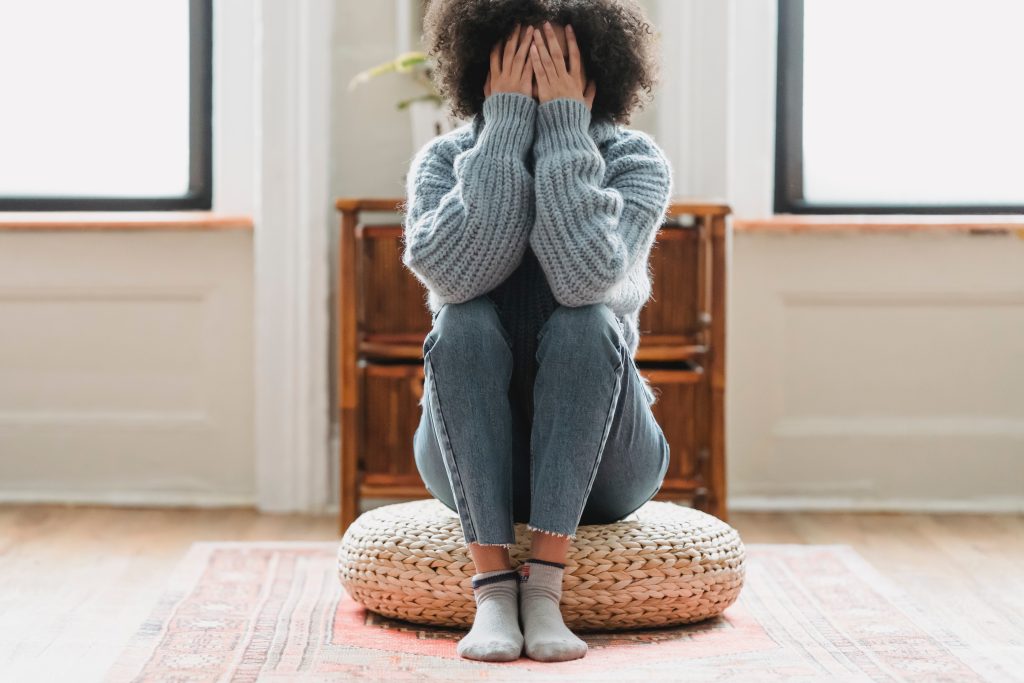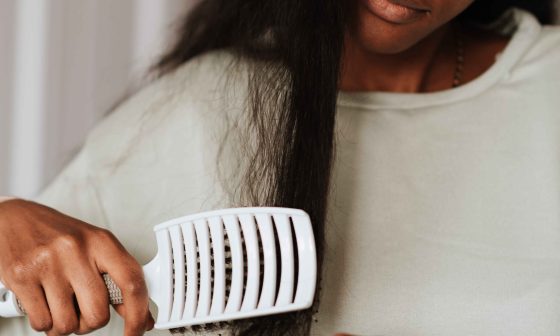How many times have you been sleepy throughout the day, or half falling asleep while binge watching Netflix (we won’t judge you for hitting ‘still watching’), but then as soon as your head hits the pillow you’re wide awake? We feel you. There’s very few things in the wellness world worse than the feeling of sheer exhaustion without being able to sleep. This lack of sleep puts stress on the body propelling you into a potential loop of sleepless nights.
Thankfully, we’re here to help you get to the root cause of your restless nights so you can get the much needed shut eye you deserve. Here are the top 7 reasons why you may not be able to fall asleep, or stay asleep at night.
1. Screen time
Blue light has the ability to affect your energy levels and it may leave your eyes feeling heavy and fatigued. It also decreases the amount of melatonin our bodies produce, throwing our circadian rhythm out of sorts, so even though we feel tired and ready for bed, we can’t fall asleep.
Try minimizing screen time, and shutting down devices an hour before bed. This will allow your body to produce enough melatonin to fall into a peaceful slumber. If cutting out the screen time before bed isn’t an option, be mindful of the lights around you. Keep the lighting in your space dim and minimal. Try using a yellow filter on phones, tablets and laptops to reduce the intake of blue light. Blue blockers are also a great option if you’re like us and find yourself saying “just one more episode” at the end of every episode.
2. Bedtime snack

There seems to be mixed reviews and contradictory information on snacking before bed. Typically the argument against a late night snack is so you can allow time for your digestive tract rest. This is sound advice and a great point, but we’re all about listening to your body. If you’re hungry, don’t deprive yourself! You’re just as likely to lose sleep if you’re plagued by hunger pangs.
Your body gives you cues for a reason, and what we reach for is more important than when we reach for it. Make it light and easy to digest so we aren’t kept awake with bloat or indigestion! Try a high fat, high protein option that will keep your blood sugar balanced throughout the night—a slice of sourdough topped with some almond butter is a great option.
3. Routine
When it comes to sleeping, our bodies are used to routines. Our internal clocks thrive on a set schedule so if you go to bed significantly later on weekends, it can disrupt this clock. Obviously you have a life to live, and who are we to give you a curfew? But sticking within an hour’s range of your usual bedtime time will help your circadian rhythm stay in check.
Habits are a result of cues and triggers. When you have a bedtime routine, like brushing your teeth and washing your face, it also acts as a trigger in your mind that it’s time for bed.
Pro tip: if you wake up in the middle of the night and can’t fall back asleep, try completing your evening routine again to fire off those signals in your brain.
4. Workout
Working out and releasing energy throughout the day is a surefire way to promote a better night’s sleep, but too close to lights out, and you’ll be running the risk of having too many endorphins pumping to sleep. If it’s the only time you can squeeze in some movement, be mindful of the activities you partake in. A gentle yoga flow or a light walk with your four legged friend—great! A HIIT session—definitely not the best. If high intensity sessions are your jam, make sure to finish your workout at least 3 hours before turning it in for the night.
5. Supplements

A deficiency in essential vitamins and minerals can also lead to poor sleep quality. It’s also important to note that when we don’t get enough sleep it can affect so many other systems in our bodies — our digestive system, nervous system and endocrine system all take the hit. Make sure your body is fully nourished to ensure you get a good night’s sleep.
Some of our go-to supplements that may help you sleep:
- Magnesium
- Vitamin C
- Vitamin B12
- Vitamin D
- Calcium
- Iron (when deficient)
6. Temperature
Our body temperature drops at night, and being in an environment that mirrors your internal temperature is key. Not too hot, and not too cold. If our bodies are too hot during the night we have a hard time completing our REM cycles.
Pro tip: your sleep is more sound when it mirrors your body temperature, but we know this isn’t always the most relaxing – take a hot shower before bed to relax your body and your mind, but keep your room slightly cooler to promote a deep sleep.
7. Stress

This is the most common reason why you may not be sleeping at night. During the day, we’re often distracted by work or social activities, but once we’re ready to hit the hay there’s nothing to take your mind away from the things that are stressing you out. A blend of adaptogens as well as a B-complex may work wonders when it comes to managing stress.
We also recommend carving out a designated “worry time.” At the same time daily, bi-weekly, or weekly, make a list of things that are stressing you out. For each item, jot down why it’s stressing you out and what you can do. If you have the time and want to extend the exercise even further, jot down the worst thing that could happen for each item and what you would do then — oftentimes, we realize that even if the worst case scenario would play out, we’ll still be okay.
If you wake up in the night, or can’t fall asleep, just remind yourself that you have a carved out time to tackle these things.
We know how important sleep is, but we also know how hard it can sometimes be to get. Try some of the tips above and let us know how it goes!







